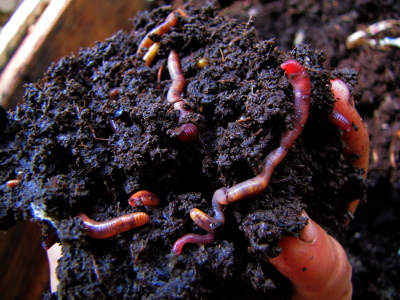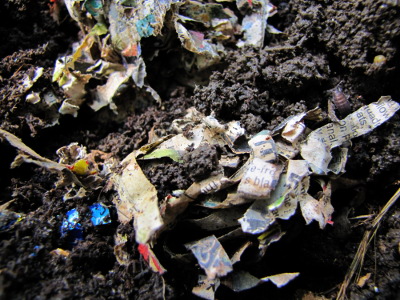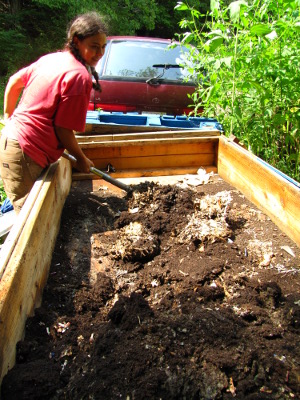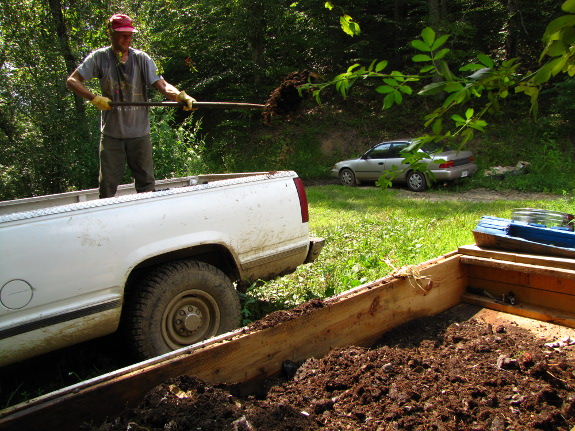
Neglected worm bin
 So,
I got busy and forgot to check on our worm bin for...three months.
So,
I got busy and forgot to check on our worm bin for...three months.
To keep you all up to
date, we started a medium-size
worm bin in February and filled it
with around 9 pounds of worms, shredded paper bedding, and then lots of
food
scraps from the local middle school. Throughout February,
March, and April, we layered food scraps between shredded paper, torn
cardboard, and pieces of cardboard egg cartons, until finally calling
the experiment a failure. The trouble is that
the worms just weren't happy with their  environment so they didn't
eat. Pests moved in and the whole thing stunk.
environment so they didn't
eat. Pests moved in and the whole thing stunk.
In May, I tossed twenty
gallons of horse manure into the bin to see how the worms would like
the alternative food. They loved it! If I'd gotten smart,
I would have added more manure immediately, but instead I got busy and
forgot about the bin.
When I finally looked
in, I was interested to see that the worms had completely composted all
of the manure and had finally started working on the food scraps.
The cardboard had  completely decomposed, but
there were still big chunks of paper present --- clearly, shredded
paper is not the best bedding material, even though it looks
like it should be. The worms seemed to have run out of food that
made them happy too --- I estimate that only about 4.5 pounds of worms
remained in the bin.
completely decomposed, but
there were still big chunks of paper present --- clearly, shredded
paper is not the best bedding material, even though it looks
like it should be. The worms seemed to have run out of food that
made them happy too --- I estimate that only about 4.5 pounds of worms
remained in the bin.
I shoveled all of the
worm castings to one side and Mark helped me fill the rest of the bin
mostly up with new horse manure. Hopefully the worms will all
migrate to the prime food and I'll be able to use the finished worm
castings on our fall garden and potted plants. I estimate the
total production from 270 pounds of food scraps, 20 gallons of manure,
and masses of bedding is about 8 cubic feet (0.3 cubic yards or 60
gallons) --- vastly less than I'd expected, but probably still enough
to have positive effects on the garden.

Want more in-depth information? Browse through our books.
Or explore more posts by date or by subject.
About us: Anna Hess and Mark Hamilton spent over a decade living self-sufficiently in the mountains of Virginia before moving north to start over from scratch in the foothills of Ohio. They've experimented with permaculture, no-till gardening, trailersteading, home-based microbusinesses and much more, writing about their adventures in both blogs and books.
Want to be notified when new comments are posted on this page? Click on the RSS button after you add a comment to subscribe to the comment feed, or simply check the box beside "email replies to me" while writing your comment.
